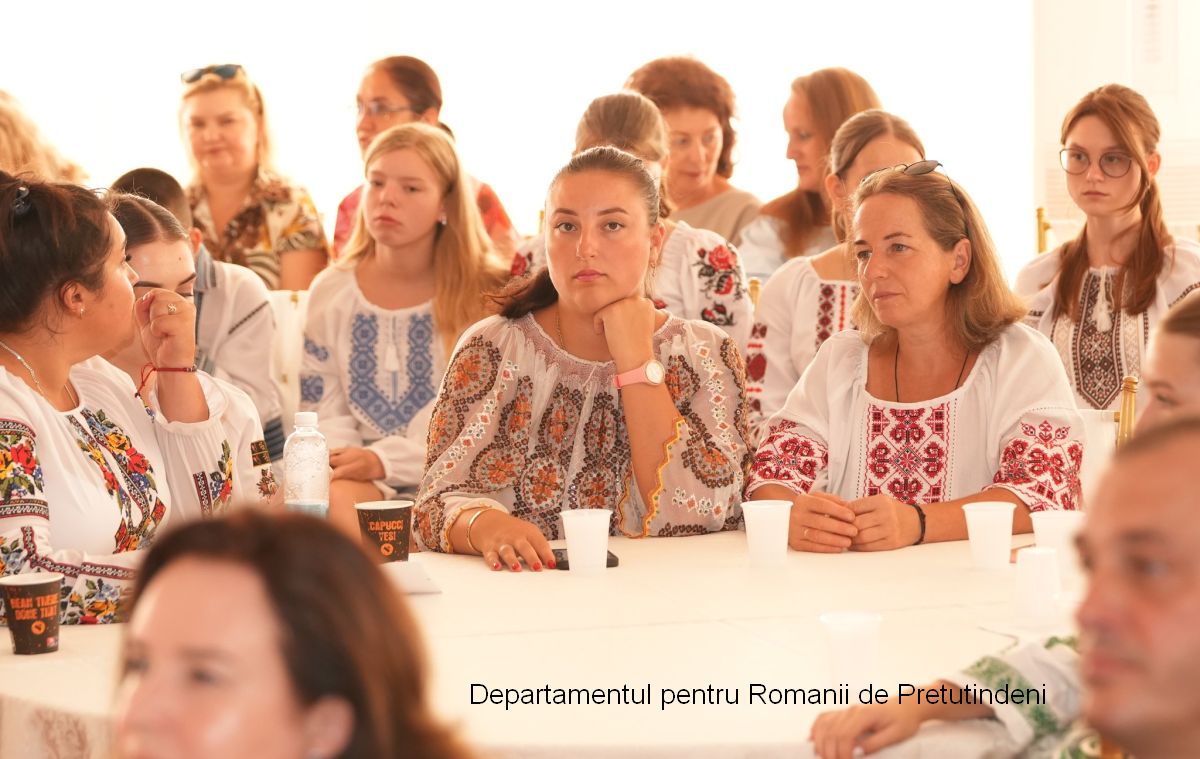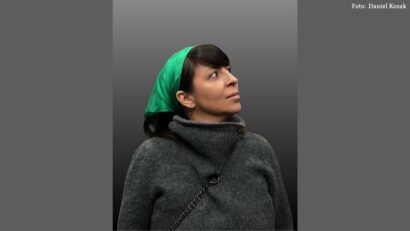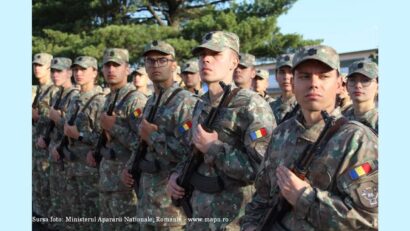Romanians in the Diaspora, their children and the need to understand who we are
Migration is a culture shock that many Romanians in the Diaspora experience.

Iulia Hau, 21.05.2025, 14:00
A study made public by the Department for the Romanians Everywhere in 2023, showed that episodes of discrimination based on ethnicity, as well as the fear of losing national identity, were among the most important risks and vulnerabilities mentioned by Romanians in the Diaspora. Among Romanians in the countries participating in the study (i.e. Spain, Italy, Germany, USA, UK, Canada, Israel, France, Austria and Belgium), Romanians in the UK most frequently reported difficulty integrating into the host country.
Alina Dolea, a university lecturer with Bournemouth University in the United Kingdom, has been researching the perceptions and emotions of Romanians in the UK since 2019. After numerous interviews and focus groups, she concluded that programs dedicated to Romanians in the Diaspora should include intercultural navigation skills and competencies: “We need Diaspora programs to broaden our understanding of Romanian culture, which is diverse. We also have diversity. And we also need an emphasis on intercultural negotiation skills because it is a culture shock. Migration is a culture shock; even if we went to Italy, Spain, Germany, England — there are other cultures, other countries, a different history. How can one not be shocked if you are in Great Britain, for instance, where there is so much diversity. Great Britain is a former empire, has the history of an empire, of colonialism and obviously in any school you step into, you will see from the first day that there are numerous ethnicities, numerous languages spoken, numerous races, after all. Well, even if you don’t understand this from the beginning… that’s what we have to do. We need to explain better, to do better education about rights and responsibilities and about the country – cultural education, cultural resources, what Romanian culture means, what British culture means. How did it form? We need to understand these things.”
The researcher emphasizes the potential for improvement of weekend schools included in the school curriculum in the UK, which could diversify their activities to include, for example, topics such as the contribution of Romanians (or other nationalities) to British culture. In addition, she insists on the need for cultural programs brought to the present, more relevant to today’s youth and which would serve to consolidate a healthy national pride, based on the understanding of diversity: “In British schools they all have days to celebrate national culture. They have Dipvali, they all have cultural or cultural-religious festivals. And my children were invited to come and talk about Romania on such a day. And my son tells me: I did some research on Google and the first thing that came to my mind is that Romanians are among the biggest alcohol drinkers in Europe. Do you understand? So that’s what it is about? If you were to make some materials like this ‘in a nutshell’ what’s up with Romania, where it comes from, what’s the culture… ok, we have ruler Stephen the Great, poet Mihai Eminescu, but we also have other symbols of modern, current culture, so it doesn’t have to be only that heritage culture… Yes, we’re talking about the architecture of Romania, we’re talking, of course, about monasteries, but monasteries as part of UNESCO; and we also have fortresses in UNESCO and about the Danube Delta, which is unique… I mean, there are so many things to talk about.”
Regarding national identity, Alina Dolea says that it is important to explain to young Romanians raised abroad that customs and habits are also very diverse; that Romania was at the confluence of three empires that left their mark on each of the country’s historical regions. She also says that young people brought up in the Diaspora need to be supported in their search for their own identity: “We have a Diaspora mainly of the first generation and now the second generation is coming. I refer to the children who are educated here in the Diaspora: these young people who, obviously, during their adolescence, are searching for their identity. So it is a normal period, after all, to ask yourself questions. Who am I? Am I Romanian? Am I British, Italian, Spanish, German? Who I am also acquires this national dimension. In the end, it is a negotiation of national identity and belonging to a group, which is again normal. And we do nothing to help this negotiation. What could help is this kind of cultural resource, which would explain to children their own history… explain to the child that the country was formed at the intersection of three empires, that since then there have been influences from the three empires that are still felt today. That, for example (…) there is ethnic diversity in Romania, that there were forty-five years of communism and during those forty-five years of communism there was a policy of Romanianization.”
Most of the people who participated in the aforementioned qualitative study do not want to return to Romania. Among the reasons are the difficulty of readjusting to the way of life in Romania, but also the perceived lack of a better future for their children. (EE)






























